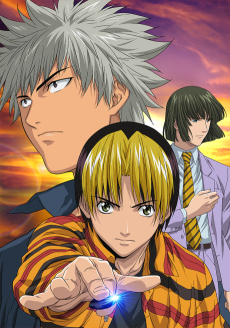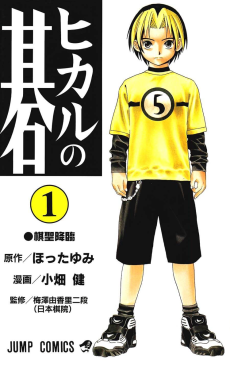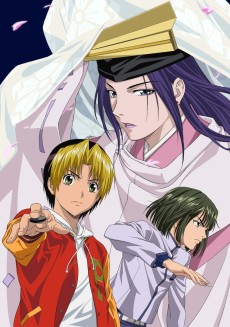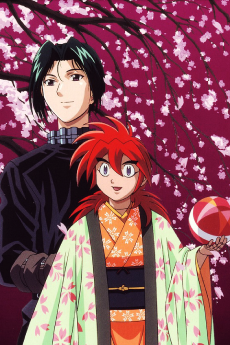HIKARU NO GO
STATUS
COMPLETE
EPISODES
75
RELEASE
March 26, 2003
LENGTH
23 min
DESCRIPTION
With a two-tone hairstyle and a streak of immaturity, Hikaru Shindou finds an old Go board with a hidden surprise - trapped within the Go Board is Fujiwara-no-Sai, the ghost of an ancient Go master! In the blink of an eye, Sai becomes part of Hikaru's consciousness and soon begins to learn the true essence behind this ancient game of skill and strategy.
(Source: Viz Media)
CAST
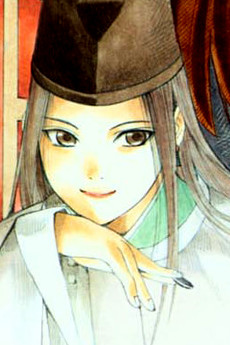
Fujiwara no Sai
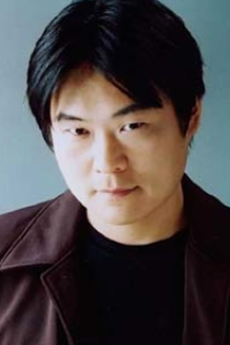
Susumu Chiba
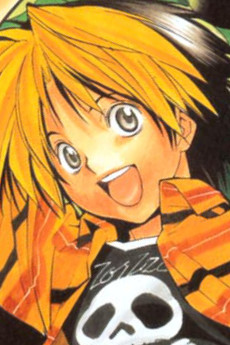
Hikaru Shindou
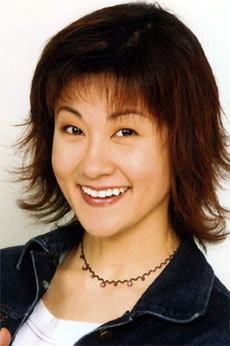
Tomoko Kawakami
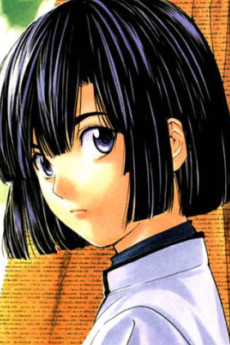
Akira Touya

Sanae Kobayashi
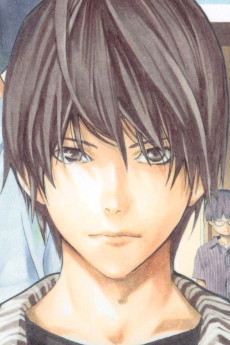
Shinichirou Isumi
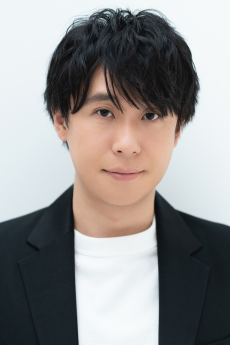
Kenichi Suzumura
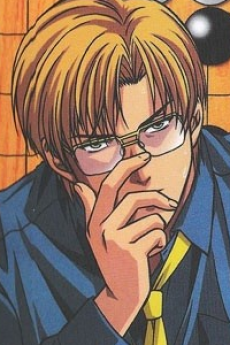
Seiji Ogata
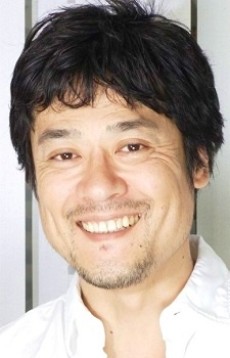
Keiji Fujiwara
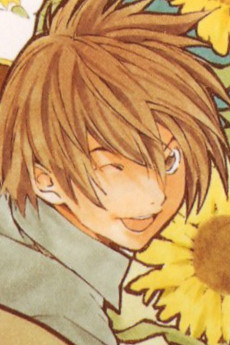
Yoshitaka Waya

Reiko Takagi
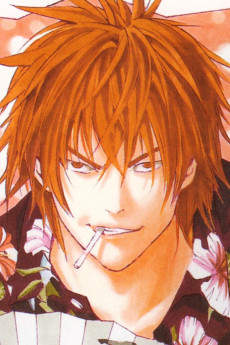
Tetsuo Kaga

Kentarou Itou
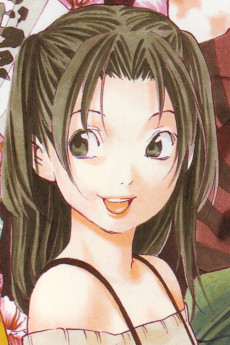
Akari Fujisaki

Yumi Kakazu
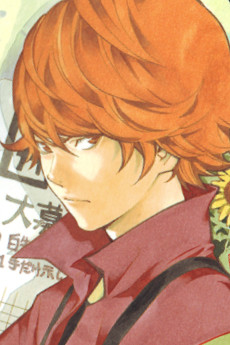
Yuuki Mitani

Yuu Asakawa
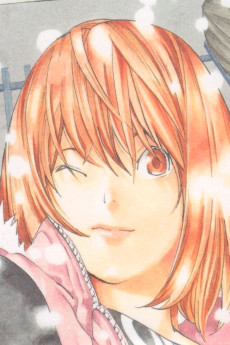
Asumi Nase

Atsuko Enomoto
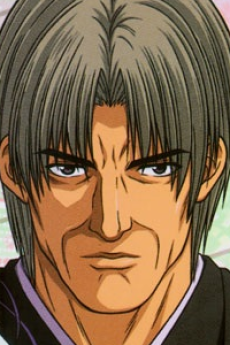
Kouyou Touya
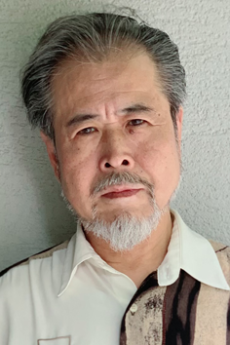
Eizou Tsuda
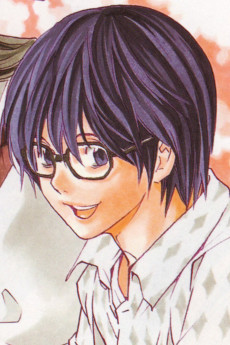
Kimihiro Tsutsui

Makoto Tsumura
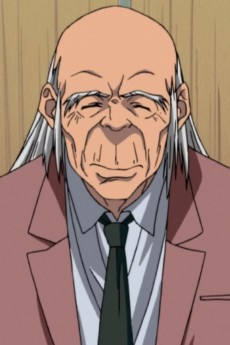
Honinbou Kuwabara
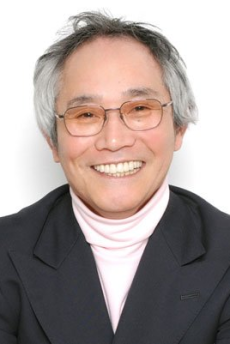
Rokuro Naya
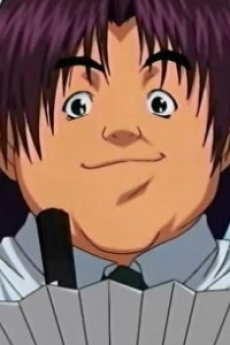
Atsushi Kurata
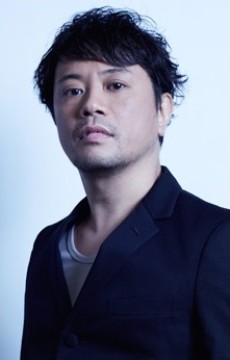
Mitsuo Iwata
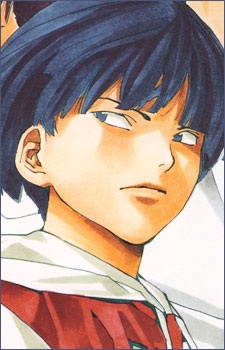
Suyong Hong

Miyako Itou
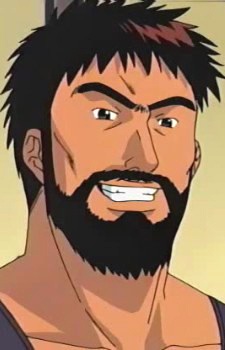
Toshirou Tsubaki
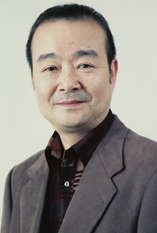
Tomomichi Nishimura
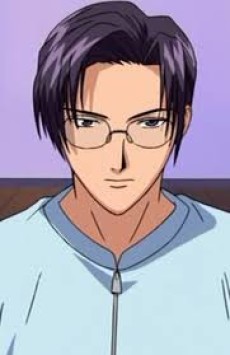
Kaoru Kishimoto
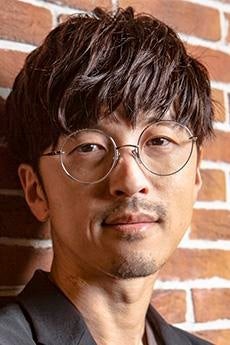
Takahiro Sakurai
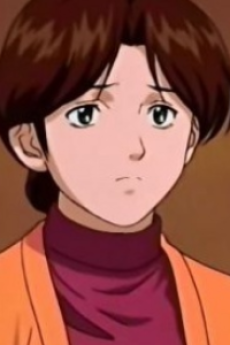
Mitsuko Shindou

Yurika Hino

Yuuta Fukui
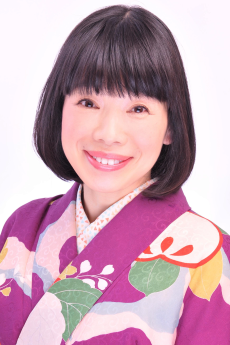
Wasabi Mizuta
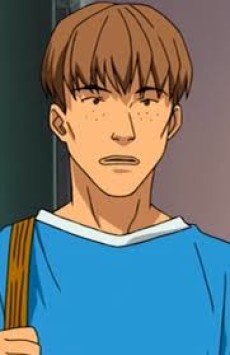
Toshinori Honda

Takahiro Sakurai
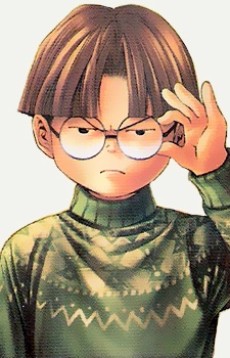
Kousuke Ochi
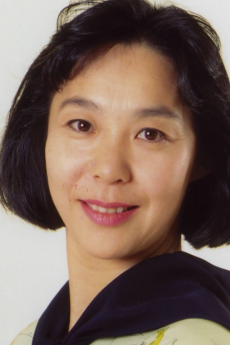
Youko Matsuoka
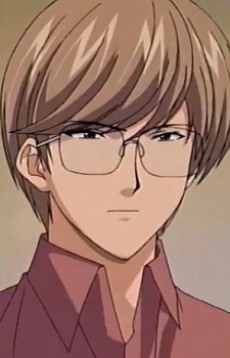
Ryou Ijima

Takayuki Yamaguchi
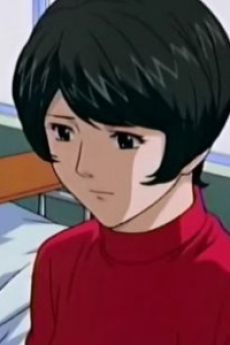
Akiko Touya

Rei Sakuma
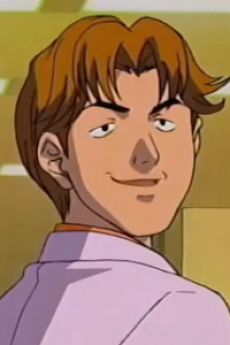
Mitsura Mashiba
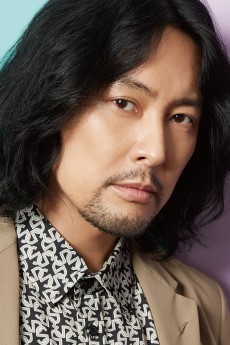
Hiroyuki Yoshino

Dake

Takashi Nagasako
EPISODES
Dubbed
RELATED TO HIKARU NO GO
REVIEWS

mochiko
90/100The oldest and greatest of games and a story that understands it perfectly and loves it completelyContinue on AniListHikaru no Go is old, rough around the edges, and perhaps not about the most enticing of subject matters. And the game of Go itself appears to be plain and simple. For both, there is gold underneath the veneer. There's a reason why a 20 year old long running shounen with perhaps the least appealing art from anything made 20 years ago maintains it's 400 ranking on MAL. And indeed, why a game with only a few simple rules and one type of piece has been the longest continually played game in human history and remained relatively unchanged since it’s inception, with the 4000 year old legacy being carried by tens of millions around the world today.
For Hikaru no Go to be good, Go would need to be good as well. Go is not quite like chess or shogi, games more than worthy of novelization and more than capable of being arenas for characters to be constructed within, as has already been seen. Go is unlike any other game. It is a sprawling universe of your own creation, and a universe at war with another. It is said that chess and shogi are conflicts of Man vs. Man. Go at first seems the same, as it is a player vs. another vying for control of a board, with multiple battles typically playing out. But it is not. "An honestly ranked player can expect to lose about half of their games; therefore, Go can be seen as embodying the quest for self-improvement"[1]. Man vs Self. And when you are a beginner, you will lose far, far more than half of your games. Go is pure hardship distilled.
And so as expected- Go is complex and enormous in scope. "The number of legal board positions in Go has been calculated to be approximately 2.1 × 10170, which is vastly greater than the number of atoms in the known, observable universe"[2]. But the rules are beautifully simple and small in number. Any person can learn how to play Go extremely quickly. This polarized combination of simplicity and complexity is what first draws you in.
There is a moment in Hikaru no Go early on where Hikaru first discovers the endless wonder of this game: as he's playing a match, he starts to feel as though every stone he places is a new star, a new galaxy, in a universe of his own creation. He loses the game, but it doesn't matter. It has clicked for him, and he has seen and felt what every player who loves the game has seen and felt. And this is where it becomes clear that Hikaru no Go understands Go. That the people who wrote it, understand Go.
Hikaru no Go doesn't stop there. It constructs compelling characters and extremely compelling narratives in and around the world of Go. Outstanding arcs set within the context of this game. And individual games themselves, that are thorough and drawn out (as any real Go game is), and in the entire shows runtime they only become more and more engrossing and captivating. One example being when Akira (a very young pro player) is invited to play a match against a pompous influential public figure, and he must play the match such that it is exactly a draw (Go matches are determined by counting points at the end; Akira needed their point count to be identical, a Herculean feat). He was asked to lose by his colleagues, as the man held influence over funding for their Go association. But he didn’t want to for his own pride as a player. The ensueing match is so fun to see play out, the stakes are high, the characters involved are fascinating due to their motivations and the powers that they command.
Another of Hikaru no Go’s unique narrative devices is that of the ghost Sai, who has toiled on this earth long after his mortal death in search of fulfillment within the game of Go. He plays through Hikaru, telling him which moves to make. A legendary player from times long past- his connection through Hikaru making waves throughout the Go world, with many key people witnessing Hikaru’s matches early on being able to recognize that this isn’t any ordinary kid playing. This seems like just a fun idea at first glance and not anything particularly special but it develops so much more- from just a sort of power fantasy device and into a rich arc unto itself, with unexpected developments and outcomes. Hikaru soon desiring his own agency as a player, rejecting the free power given to him from Sai in favor of his own fulfillment. Both of them learning and growing together as people, in and out of the world of Go. Their relationship is so interesting, and very sweet and wholesome, and seeing their arc over of the course of the series is an absolute delight.
But the most affecting of Hikaru no Go's story is in the bitter-sweet portrayal of each best player of each generation passing along the torch to the next, and in the real world idea of “divine moves”. The best player of each generation enjoys their reign of greatness, but then watches as the next generation rises up to beat them- having believed that it was their destiny to remain at the top and coming to understand that it was instead their destiny to pass on their knowledge so that someone new can surpass them. In the real world of Go, this has been the pattern over the centuries, such that the current best players may be said to be the best players to have ever lived; every generation passed on it's knowledge to the next, lifted the next, so that the next could rise even higher, just as with all human pursuits. And in the divine move, a real term in Go, is the pursuit of a single moment of absolute pure greatness and genius, one above all moves in that game and in every game that player has played, so much so that it could only have come from some higher power, reaching down and guiding the stone onto the board. A move that when considered beforehand by onlookers it seemed to have been unwise but when then witnessing the rest of the game it could only be understood as being absolutely essential and changing the course of the match entirely. These two things are central to Hikaru no Go, and indeed, they were central to the single biggest moment in the real world of Go for our generation. The match between Alpha Go and Lee Sedol, where humanity reluctantly passed the torch to AI, which had in a single moment leapt several generations in Go development ahead of our species and defeated us calmly and bitterly. But where also, we saw a divine move like no other, played by Lee Sedol, in the only match of five in which he managed to defeat the unknowable force before him. A win that he called a "priceless win that I would not exchange for anything."[3]
It is thus clear how much this show deeply understands and loves Go. Go is so much worth pursuing. Everyone deserves to see the universe that is contained within the board. Let Hikaru no Go show you the wonders of this game, and the universe therein. And if you’ve already seen that universe for yourself, Hikaru no Go is the perfect narrative to engross you further, reignite your passions, live in the world of Go.
I revere Go. I am in awe of it, I fear it, I resent it. Whenever I play, whenever I play 20 or 30 games in a row and lose every single one of them, I catch a glimpse of the cathedral ceiling above me, the infinite stars in the universe that go out forever. There is nothing else like Go. Hikaru no Go does it more than justice.
[citations]:
[1]Pinckard, William (n.d.). "Go and the Three Games". In Bozulich, Richard (ed.). The Go Player's Almanac (2nd ed.). Kiseido Publishing Company (published 2001). ISBN 978-4-906574-40-7. Retrieved 2008-06-11.
[2]Tromp, John; Farnebäck, Gunnar (January 31, 2016). "Combinatorics of Go" (PDF). tromp.github.io. Retrieved June 17, 2020.
[3]: Yoon Sung-won (14 March 2016). "Lee Se-dol shows AlphaGo beatable". The Korea Times. Retrieved 15 March 2016.
Lenlo
90/100Hikaru no Go's story of connections and legacy stands shoulder to shoulder with Sports Anime's greatestContinue on AniList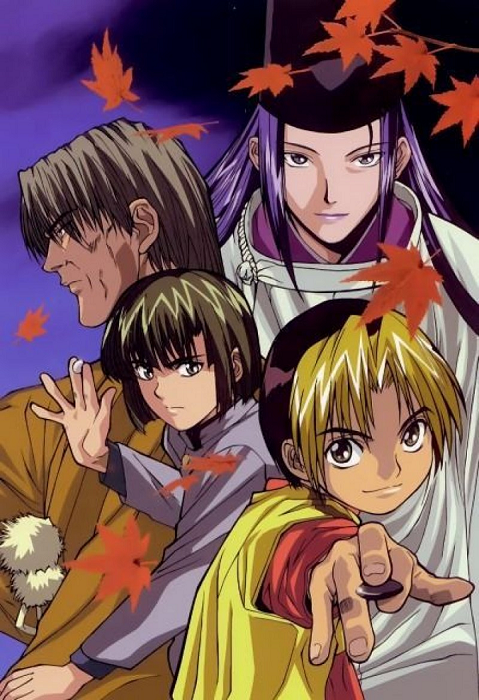
Slam Dunk. Haikyuu. Cross Game. Aside from being fantastic series in their own right, and being about sports, they all share one thing in common: Their success helped popularize their sport, both in Japan and the world at large. Slam Dunk has an actual basketball scholarship program named after it for goodness sake. They galvanized entire generations, showing them how fun and accessible these sports are, and how cool they could be if they played them. In a way, in some communities minds, they have come to define that sport just as specific athletes like LeBron James or Lionel Messi do. And today, I would like to introduce you to another series from this most hallowed of halls. Originally written by Yumi Hotta with direction split between Susumu Nishizawa, Jun Kamiya and Tetsuya Endou, animated at Studio Pierrot, I give you 2001's Hikaru no Go.
Be warned, this review contains minor unmarked spoilers for Hikaru no Go. It also contains major spoilers in some sections however these will be heavily marked to avoid accidents.
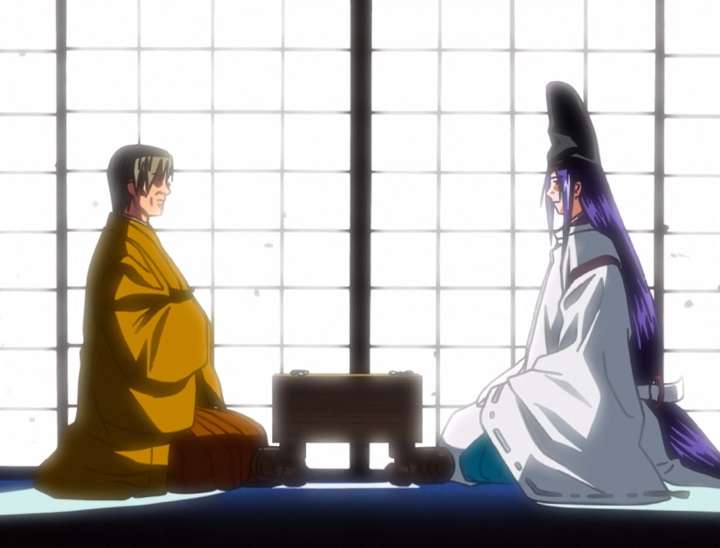
Narrative First up, what is Hikaru no Go about? On the most basic level, Hikaru no Go follows our titular lead, Hikaru Shindou, as he becomes haunted by a ghost from Heian era Japan and is introduced to the wonderful world of Go. But what even is Go? Go, also known as Igo, Weiqi and Baduk, is an East Asian strategic board game not unlike Chess. But where Chess seeks to capture the king, Go seeks to capture territory, and where Chess has individualist pieces, Go has groups of connected stones. It is in the differences between these games where can find the greater themes of Hikaru no Go: Connection. Community. The passing of the torch, from one generation to the next. Working together to play a greater and greater game of Go.
On it's surface, Hikaru no Go's story is structured in a pretty standard manner. Hikaru starts a sport, Go, meets a rival, Touya Akira, and the two circle each other. Forever improving and reaching greater and greater heights. In that, Hikaru no Go is a pretty standard Sports Shounen. What set's it apart from many of it's contemporaries however is the same thing that sets Haikyuu, Slam Dunk and the other great sports series apart: The care it gives to the human element. No game is ever played "Just to have a game". There's always a greater emotional need for that game. Whether it be Akira chasing the shadow of Sai or Hikaru chasing Akira, a Senpai's desperate desire to start a club or a philosophical difference over the game itself. Yes, more light hearted games exist. But even those have reasons beyond "The show needs some action here".
Narratively, the only real negative is how abruptly Hikaru no Go ends, as well as some filler episodes and a dip in the pacing. The first is a bit of a sad tale, with numerous sources citing a conflict with a Korean Go player accusing the series of depicting them poorly, as well as fan backlash regarding what I believe to be the best narrative decision in the entire series. Combine these with the natural slowing of a series as it catches up to it's original manga, and you get what I would call an anti-climactic ending. Emotionally, I find it beautiful. Hikaru no Go's final arc is one of the most cathartic, emotionally resonant finales I have ever experienced. But it climaxes about 6 episodes before the show does, leading to a bit of an epilogue problem. Is this a huge issue? No. But it's noteworthy.
Ultimately however, despite it's pacing issues and abrupt ending, I think Hikaru no Go's narrative it a beautiful one. The way it brings back older arcs/characters to show us how far they, and Hikaru, have come. It's depiction of how Go can mean something different to everyone, whether it be an old man trying to connect with his grandson or a young student trying to go pro, a middle-aged salarymen still holding onto the vestiges of a dream or an ancient ghost completely disconnected from the world yet still remembered through how he plays the game. This is not just a story about some random kid picking up a new sport. It's a story about the sport itself. And it's exactly because of this that it inspired people around the world to try the game, the same way Haikyu did Volleyball and Slam Dunk did Basketball.
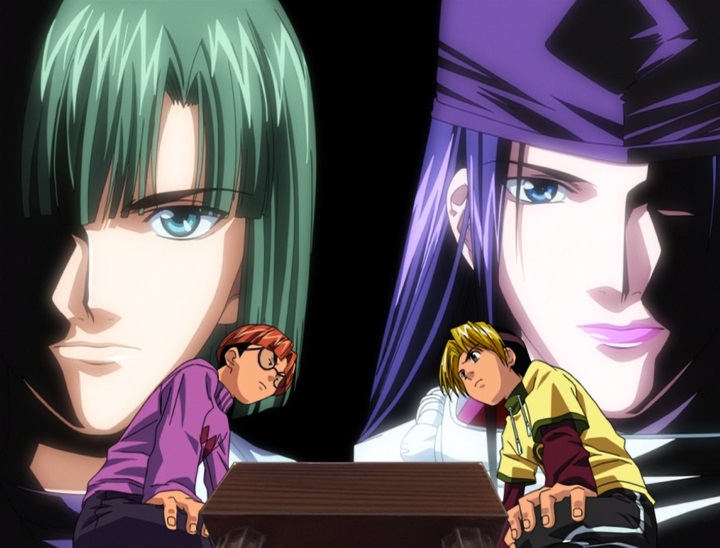
Characters Speaking of the character, if they are that important to the story then let's go ahead and talk about them. Hikaru no Go has a fairly sizable cast. Upwards of 100 if memory serves, though only about half of those are what I would call relevant. With the rest being one-episode wonders, adding flavor to a story or filling in the background. Of those 50, about 10 are probably relevant from start to finish. The remaining 40 or so either existing from the start with minor appearances, like Kuwabara Honinbou, or having a major role in a single arc and then fading away after words, like Toshinori Honda. This isn't to say these characters are meaningless of course! Honda has one of the most emotionally charged scenes of the entire show after the Pro Exam. I only mean that they aren't part of the core, main cast.
Among our core cast, 3 in particular stand out and define Hikaru no Go as a series: Hikaru Shindou, Akira Touya, and Fujiwara no Sai. These first 2 are pretty obvious, they are our lead and his rival, 2 sides of the same coin, the same story but from 2 different perspectives. Where Shindou begins the show as a novice, not even aware of its rules and learning how to play, Akira is already skilled enough to go pro. One teaches us the sport, allowing us to grow and learn the sport and its history along side him, while we watch the other mature, both as a young adult and a budding pro. All the while the two circle each other, perpetually pulling the other along. But some of you might wonder, why is Akira chasing Shindou if he's a complete novice? This is where Sai comes in.
If Shindou and Akira represent modern Go, then Sai represents Go's history. He is all the players who came before. Who discovered the strategies used today, who pushed the game forward, who started this long chain of connections. Sai represents how, despite their time having passed, you can still learn from the older players today. In many ways, it is that those players existed at all. And that is what truly makes Sai's place in this story beautiful. How, despite being unable to physically interact with the world or anyone other than Hikaru, he is able to affirm his existence through the game. His style of play, the way he thinks, his very personality exists on that board. And others, such as Akira, are able to recognize that. It's this exploration if identity, even without a corporeal body, that makes Sai one of my favorite characters in Hikaru no Go.
Basically what I'm saying is this: Hikaru no Go revolves around it's characters. There isn't really an overarching plot, there's no national championship, no team spirit. Hikaru can stop playing at any time and the only person who loses out would be him. And while this does lead to some of the pacing issues I mentioned above, I still think it's one of Hikaru no Go's greatest strengths. Characters aren't pulled along my some grand plot or must-do task. Rather, they are motivated by their own goals, their own agency. They do what they do not because it is thrust upon them, but because it is something they want. And sometimes... sometimes they don't get it. And from these moments of loss springs forth their growth as people, and some of the best scenes in Hikaru no Go's entire run.
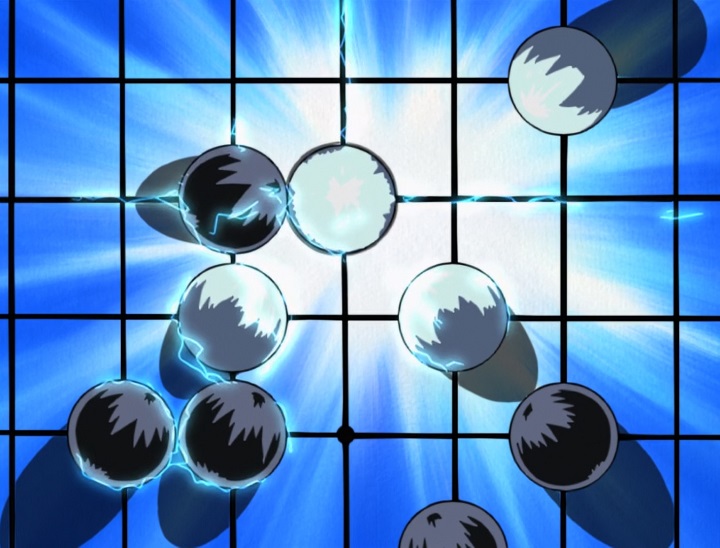
Production This brings me to the production, and my primary criticism against Hikaru no Go. To put it simply: Hikaru no Go is not a good looking show. Sometimes it makes use of bold linework, heavy shading and saturated colors to produce some striking scenes, as well as the occasional inspired composition. It most certainly has good looking, memorable shots that you will find yourself engrossed in. But this is a 75 episode monster animated at Studio Pierrot, a place known for taking Shounen and pumping them out like dollar menu cheeseburgers, and Hikaru no Go is no exception. You're regular visual experience will be stills, sliding backgrounds, panning shots, extreme closeups and overhead shots of the board. Does this sound like an engaging visual experience? Because as someone who absolutely loves this show, let me tell you, it's not. The only saving grace for this production is it's unity.
Hikaru no Go, despite it's visual shortcomings, has a unified vision across the entire production. Every single element, from character designs to lighting to music, they all feel like they belong together. Do you know that old adage, "The whole is greater than the sum of its parts"? That's Hikaru no Go. Timing the clicking of stones on the board to the beat of the song, character reveals to the swell of the music, pacing a scene just right so that the sunset strikes their back just as they deliver their line. It's all just... perfect. Considering Hikaru no Go had 3 directors across it's run, I'm not sure if this is down to phenomenal team cohesion, or simple luck. Whatever the case, the actual experience of watching Hikaru no Go is far greater than it's lackluster visuals would otherwise lead you to believe.
So all in all, while Hikaru no Go is certainly hamstrung by it's visual production, it's able to make up for a lot of it's shortcomings by ensuring all of it's various pieces work together to their maximum effectiveness.
OST/Sound Design Finally we come to the OST and Sound Design. There's no easy way to put this, so I'll just say it outright: Kei Wakakusa, AKA Saitou Tooru, is a God among men. What he has done here, as the primary musician/composer of Hikaru no Go, is create one of the most iconic sound tracks in all of anime. Across its 75 episode run, these 60 or so tracks run the emotional gamut. From the soft, halcyon days of "Yuu" to the challenge of scaling mountain tops with the iconic "Kami no Itte". The grief and hope for a brighter tomorrow "Mae wo Muite" evokes to the funky, almost cocky confidence of "Sairyou no Itte". Throw me any song on this list and I can probably name not only a scene where it played, but enhanced it. Yet so great is this OST that I'm not even halfway done.
Saitou doesn't restrict himself to a single track for any given emotion. Instead, he tackles each one from a myriad of different angles, coloring each one ever so slightly different. In "Michibiki" he trades the unreachable mountain tops of "Kami no Itte" for a smaller, more personal, yet still inevitable, destiny. Or the funky, almost cocky confidence of "Sairyou no Itte" for a the more resolute and focused "Shukuteki". Even the subtle differences between "Mae wo Muite" and "Tomadoi", both so clearly stricken with grief yet with their own unique patinas. To me, this is one of Hikaru no Go's greatest strengths as an OST. If it had just one track for each emotion, they would get played out quickly and lose their power. But some of these only get played once, maybe twice across its entire run, so they never suffer from that kind of dilution.
This isn't to say that Hikaru no Go is nothing but grief, battle and destiny however. Far from it! Sure, tracks like "Takaburu Omoi" and "Nagori" really play up the destined rival thing. But there are also plenty of day to day tracks celebrating the simple days before or between epic clashes! "Kizuna", "Imayori Takai Tokoro e" and "Atatakai Hi" are just a few examples of this. Those warm Summer days spent in the club room hanging out with your friends, or soft sounds of Spring after a cold and harsh Winter. Suffice to say, I absolutely adore Hikaru no Go's OST. Its stuck with me for over a decade since I first saw it, so much so that I was brought to tears just by hearing some of these songs again for the first time after starting my rewatch. I can only hope it does the same for you.
As for the sound design and folly work, there really isn't much to say here. While it's OST is absolutely iconic, Hikaru no Go's overall sound design isn't terribly impressive. Within the games of Go it's pretty good! The clicking of stones on boards, the rustle of fingers within a bowl, wind blowing through peoples hair and clothing as they dramatically place stones. It sounds great! Satisfying even! But outside of them I can't say it was particularly memorable. This isn't to uncommon for Studio Pierrot, even today. But it remains a noticeably dull mark on an otherwise outstanding series.
P.S. OPs 1 & 2 are absolutely incredible.
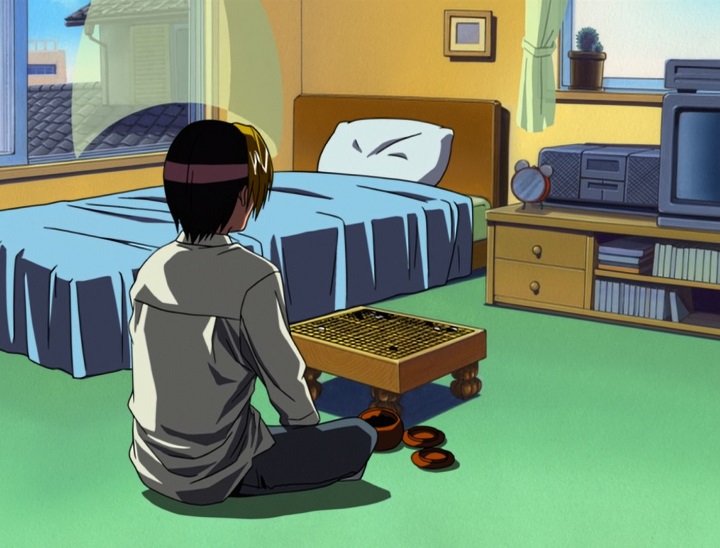
Tsugi, Connecting the Stones Finally we come to the personal section of this review. This is where I drop all pretenses and structure and simply try to have a conversation with you. To tell you how Hikaru no Go touched me, personally, to try and explain why I feel the way I do about it. This is no-holds-barred spoiler territory. In fact I can tell you right now I'm going to talk pretty heavily about perhaps the most emotionally and narratively important scene of the entire show. So if you haven't watched it, or you maybe don't care about my personal story with the show, then feel free to skip. I've already talked about all the main stuff above. But if you want to try and connect with me and get to know me as a reviewer? Then read on. You have been warned.
Where to begin... I said at the start of this review, up in the narrative section, that the game of Go is about connection. Of pushing outside of your comfort zone into foreign territory, of linking back up with others when you are weak or creating your own community to survive on your own. And, despite how vague and generalized that may sound, that Hikaru no Go exemplifies that. I also said, in the characters section, that Sai represents the "History" of the sport. The players who came before and paved the way, who pushed it as far as they could so that a younger generation could push it further. That, despite no one being able to see him, he is still connected to the rest of the cast through his Go. But we see this most clearly in his connection with Hikaru, as both his passion and his goal.
Near the very end of the series, Hikaru no Go makes what many fans at the time thought was a terrible decision but that I think results in one of the single greatest depictions of grief in all of anime: Hikaru no Go kills Sai. Well not kill, he's a ghost. But his time on Earth, and with Hikaru, has come to an end. He has passed on his knowledge, taught and inspired the next generation, he has done what the past is meant to do. And now it's time for him to go, to leave Go to the next generation. To Hikaru. And as a young man, Hikaru doesn't really understand that yet. He struggles through the 7 stages of grief, refusing to believe, blaming himself, thinking he stole Sai's time and believe he isn't worthy to touch the stones. And then... he finds him. In his Go.
After looking everywhere, all over Tokyo, all over Japan, Hikaru finds Sai in the one place he thought he was unworthy to tread: Go. By playing the game they spent so much time together over, Hikaru is able to see him. To connect with him. "That's a move Sai would make". "Sai would play here". It's a confirmation of everything Hikaru no Go has built up across its entire run. That despite this character being gone, our experiences, our connections with them are not. Time is fleeting, one day you will meet your best friend for the last time. But that doesn't mean they are gone, or that you have to forget them. It means the time you spent with them meant something, to both of you. Go is a living game, built by the passing of one generation to the next. And it. Is. Beautiful.
And Hikaru no Go does this everywhere! Touya Meijin retires after playing against Sai, because he realizes that Go exists independently of the Pro circuit. He can play strong people, progress the game, without breaking his back on rigorous schedules that suck all the fun out of the game. Honda weeps after failing his pro exam, it meant so much to him at the time, it was his life. But as a an older bus driver reminds him, there's always next year. He's young, and has his whole life ahead of him. Tsubaki, a 30 year old construction worker, fails the exam on the last year he can attempt it and so entrusts his dream to Hikaru. Hikaru no Go is absolutely littered with this idea of loss, growth, and the passing dreams on to the next generation. And it makes me cry every single time.
That's why I love Hikaru no Go. That's the personal touch the series has that makes it rise above so many lesser sports Shounen. The ones that simply pay lip service, that think they can get away with soulless moments of action because that's all kids care about. But it's not all Slam Dunk, Haikyuu or Cross Game care about. They care about why people play, about what it means to play, about the different relationships and reasons people can have. And that's what Hikaru no Go cares about to.
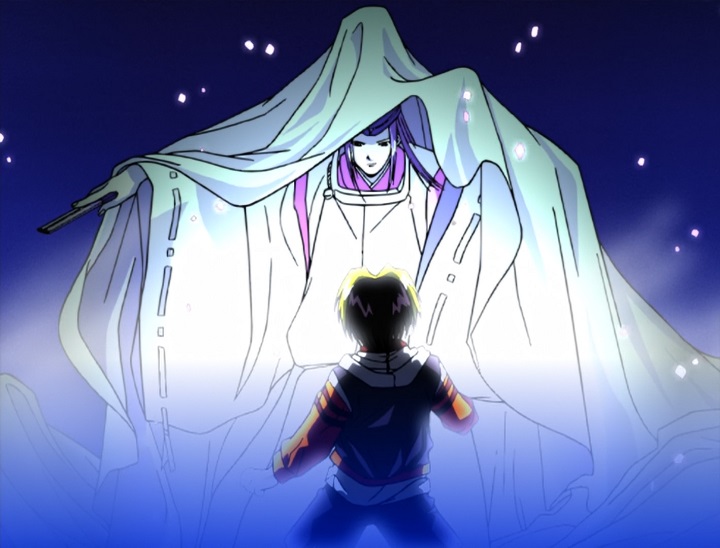
Conclusion All in all, it should be obvious that Hikaru no Go is one of the timeless greats. It isn't perfect! The production is generally lacking, and it suffers from occasionally pacing dips, these are both true. But it more than makes up for them with its soul. With that distinctly human element that no studio, no adaptation, can truly provide. It's something that has to already be present in the series from the start. Despite being less watched then most of its contemporaries, older to since I'd wager some Haikyu fans weren't even born when Hikaru no Go came out, it stands shoulder to shoulder with them in the annals of Sports Anime history. Hopefully this review convinced some of you who haven't seen it to check it out, or to rewatch it if you have. Now excuse me while I go cry to the ending one last time.
P.S. Feel free to comment on this review, I love the feedback. Agree or disagree, I'm always down for a conversation. Especially about a series that means so much to me.
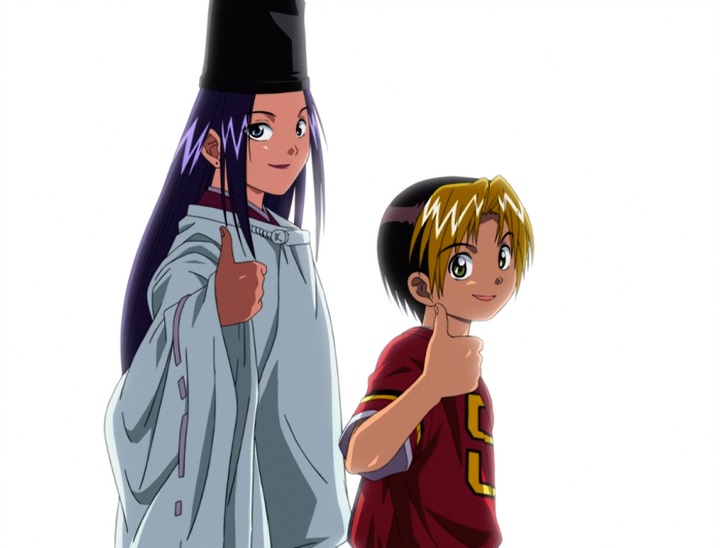
SIMILAR ANIMES YOU MAY LIKE
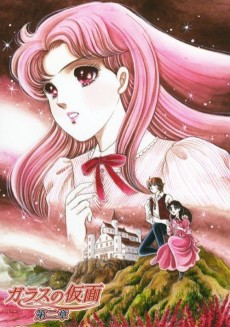 ANIME DramaGlass no Kamen
ANIME DramaGlass no Kamen ANIME PsychologicalTouhai Densetsu Akagi: Yami ni Maiorita Tensai
ANIME PsychologicalTouhai Densetsu Akagi: Yami ni Maiorita Tensai ANIME DramaChihayafuru
ANIME DramaChihayafuru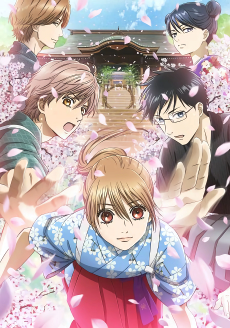 ANIME DramaChihayafuru 3
ANIME DramaChihayafuru 3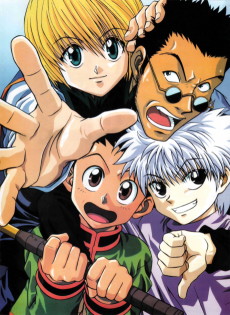 ANIME ActionHUNTER×HUNTER
ANIME ActionHUNTER×HUNTER ANIME Drama3-gatsu no Lion
ANIME Drama3-gatsu no Lion ANIME AdventureYu☆Gi☆Oh! Duel Monsters
ANIME AdventureYu☆Gi☆Oh! Duel Monsters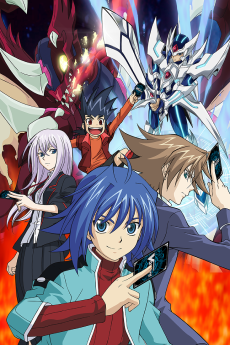 ANIME ActionCardfight!! Vanguard
ANIME ActionCardfight!! Vanguard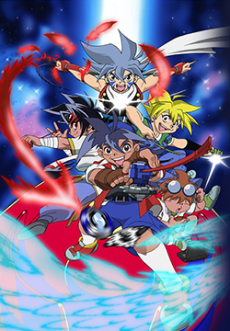 ANIME ActionBakuten Shoot Beyblade
ANIME ActionBakuten Shoot Beyblade
SCORE
- (3.9/5)
MORE INFO
Ended inMarch 26, 2003
Main Studio Studio Pierrot
Favorited by 606 Users


